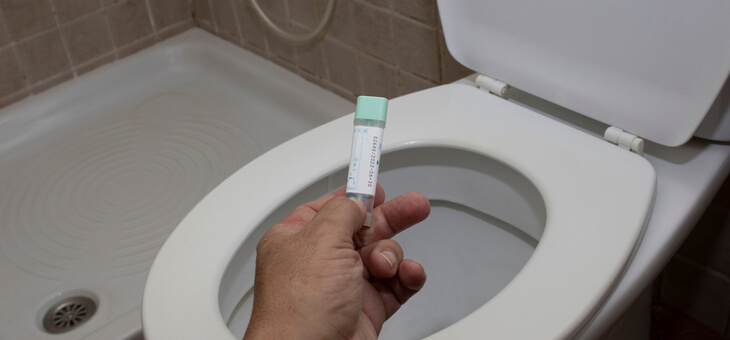The Australian government likes to remind its citizens they have hit middle age in a rather unpleasant way.
It’s a bowel testing kit that first turns up around your 50th birthday and every two years after that until you are 74.
It’s not a subject many people want to talk about, but bowel cancer is Australia’s second-biggest cancer killer.
I know a lot of statistics about bowel cancer because both unfortunately, and fortunately, I was diagnosed with it in 2020. It was unfortunate because it was cancer, but fortunate because it was picked up in one of those screening tests and it probably saved my life.
I did the first test, but when the second one arrived for my 52nd birthday, like a lot of things during the pandemic, I let it lapse and it went out of date.
Thankfully, the Australian screening program is persistent and another test arrived six months later, which I only did in solidarity with my partner who had recently had several bowel polyps – often a precursor to bowel cancer – removed.
Read: Not all cancer treatments are covered by the PBS
A rather terse text told me I needed to make an appointment with my GP who scheduled me for a colonoscopy with the reassurance it was probably not cancer. He told me there were half a dozen other causes of a bad screening result and not to worry. So, I didn’t.
When I woke up after the colonoscopy, I was more concerned I had embarrassed myself while being put under the anaesthesia but the doctor put an end to that with the news that they had ‘found a tumour’.
It began a 12-month journey that I’m not sure, more than a year later, that I am completely over.
Everything moved very quickly after the diagnosis. Ten days later I went into hospital, on 23 December, for my first surgery and my Christmas meal was ginger ale and a drip.
But here’s the thing, no matter how miserable I felt, I was lucky. It was caught in time.
Read: Prostate cancer symptoms to look out for
The tumour hadn’t breached the bowel, which puts the chances of survival at 90 per cent. But it wouldn’t have been found without that test. I had almost no symptoms. I did not feel sick, I did not look sick.
I had only told close friends and family about my diagnosis and was otherwise going to keep it quiet, as often when I did say something people started crying. It was distressing and I needed to save my emotional energy.
However, because the nurses and doctors kept telling me how lucky I was – my 5cm tumour should have breached the bowel – I took a deep breath and posted about my situation on Facebook to urge everyone to take the test if they were eligible. The response was overwhelming.
So many people who had been putting it off or ignoring the test altogether went ahead and did it. Thankfully, no-one I know came back positive but after my experience a friend urged a work colleague to take the test and they found polyps, which were easily removed with simple surgery.
Read: Drinking can increase your skin cancer risk by 20 per cent
People who feel a bit squeamish at the idea of doing a bowel screening test should weigh that up against the horror of being treated for advanced bowel cancer.
Australia’s bowel screening program begins for people aged over 50 and the ‘take-up’ of testing is not great. Only about 50 per cent of tests are returned. Of the 880,000 tests sent out in the September 2021 quarter only 421,000 were returned.
The symptoms of bowel cancer include a change in bowel movement; a change in appearance of the stool; blood in the stool; abdominal pain, bloating or cramping; a lump in the anus or rectum; weight loss, unexplained fatigue; anaemia; blood in the urine; passing urine frequently or a change in the colour.
Please, if you have a kit and it’s still viable, do the test. If you are eligible for the screening program and don’t have a kit, call 1800 627 701 and one will be mailed to you free of charge, or you can buy them at most pharmacies.
If you enjoy our content, don’t keep it to yourself. Share our free eNews with your friends and encourage them to sign up.

